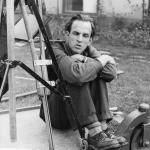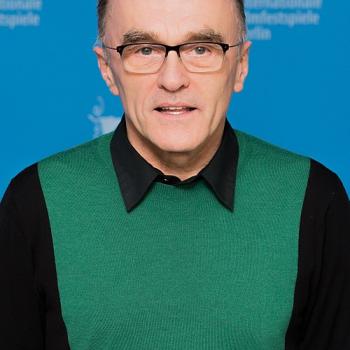
Source: Georges Biard
License
It’s ten years since the death. Not my mother, who’s been dead longer (13 years). Not my grandmother. She’s been gone about two years now. Philip Seymour Hoffman, the phenom. It’s been ten long years. His is the only celebrity death I can remember publicly crying about. Norm Macdonald hit during lockdown. That one would’ve been best kept to myself anyway. And, as a kid, I was too incurious and provincial to have many other heroes. KoRn? None of them are dead. It was, I suppose, all PSH. My love for film grew up with him.
Like any normal person, I’ve taken the anniversary as an excuse to celebrate the man and his work. The Criterion Channel’s running a special on PSH, so I figured I’d check out 2007’s The Savages, directed by Tamara Jenkins. What might it kindle in me? Would I find something new to love?
The answer, I’m sad to report, is no. Don’t get me wrong: Hoffman and Laura Linney are phenomenal (though the real show-stealer is Philip Bosco, who plays their cold, demented father—and it saddens me to admit that). In fact, that’s the film’s only note: a deep, abiding sadness. Hoffman plays a dumpy professor who sounds like he’s being paid to play a slightly (and only slightly) more depressing version of me. Linney is a down-on-her-luck playwright, who mostly works as a temp and regrets sleeping with the same, smiling married neighbor. They are siblings. Neither likes their parents. And, at least at first, neither really likes the other. Their stepmother’s death and their father’s dementia bring them together.
The beats all work. The film has funny moments (the absurdity of Linney’s sex life, the father’s turning his own hearing aid down while his half-abandoned kids argue). But mostly it’s a downer. We all die; we all end up in nursing homes (or languishing somewhere mildly more comfortable). Both sunny Arizona and snow Buffalo are barren, each offering its own cavalcade of horrors. Do you prefer sunbaked ranch hellholes or grimy Rust Belt Victorians? Do you want your neighbors to be mean, old, or both?
Normally, none of this would bother me. Jenkins has a steady hand; the writing works. What irked me is its happy ending. In the last five minutes, we shoot forward six months. Just a black screen with some text. And wouldn’t you know it: things are looking up for this lot of losers. We haven’t seen them grow at all. Yet, here they are, if not prospering then at least abiding, even improving. I thought this was an indie picture!
It all felt cheap, a bit out of nowhere, which hurt all the more because what had come before had been so effective, had made me so deeply depressed. Maybe the whole depressed would-be professor thing hit a little too close to home. Maybe it was all the time I’ve spent in nursing homes and hospices. Whatever it was—you have to work for the happy ending. The Savages doesn’t put in the effort.













